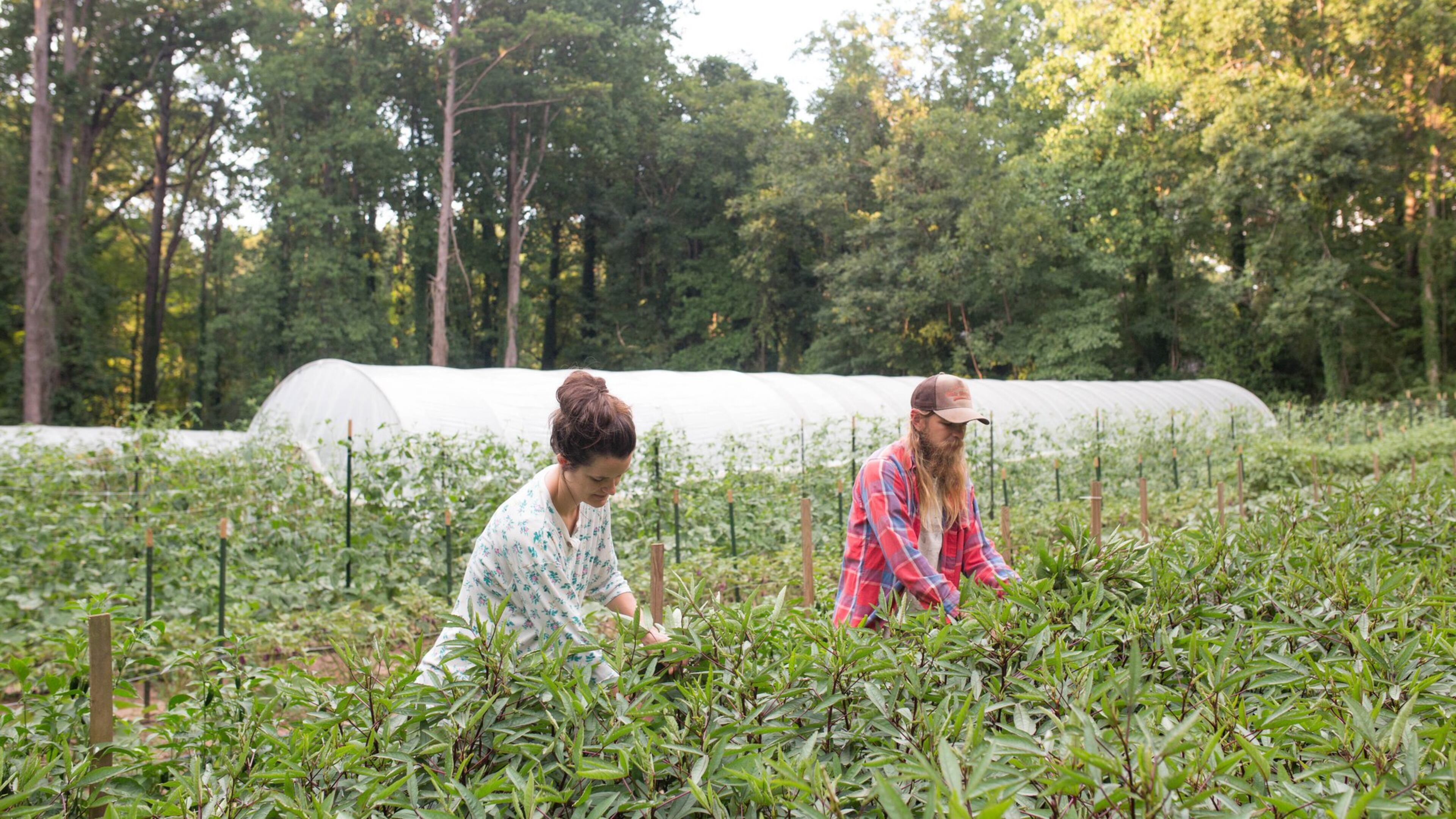Clarkston-based Fresh Harvest tweaks community supported agriculture model

Community supported agriculture (CSA) programs have been around for more than 30 years. The original programs let customers buy directly from farmers, paying at the beginning of the year for a share of what is harvested during the growing season.
It’s great for local farmers, giving them “seed” money up front, and sharing the harvest, bountiful or not.
But, the model doesn’t suit everyone. Your household isn’t into collards? They’ll still be in the box or bag, maybe for weeks. For the farmers, committing to a CSA program means planning for succession-harvesting of a wide range of crops, so their customers get variety.
And, so, people began tweaking the model.
Zac Harrison and David Melton started Clarkston-based Fresh Harvest after considering how they could help make healthy eating more convenient, while helping their customers support local growers.
“David and I talked about how we could provide a service that was more flexible and convenient for the modern consumer, but also would help farmers with things like crop planning and budgeting,” Harrison said. “We can expand the market for our farmers while allowing them to grow the items that are right for their land and their experience. Our customers get greater variety to choose from, and the farmer knows what we’ll be able to purchase.”

Fresh Harvest’s shopping window opens Wednesdays and runs until 2 p.m. Fridays for delivery the following week. Fresh Harvest trucks travel anywhere inside the Perimeter, fan out across the northern metro Atlanta counties, as far north as Cumming, and then south through Gwinnett County, down to U.S. 78.
Customers check in, decide what size basket they need (there are options ranging from mini to a “break room” basket that provides organic fruit for about 25), and then customize the contents: two bunches of cilantro. instead of one; Yukon Gold potatoes instead of Salanova lettuce. By Friday afternoon, when customization is over, Fresh Harvest knows exactly what it needs to purchase for the coming week.
“Our model cuts down on food waste,” Melton said. “We can give our farmers their orders on Friday, so they’re not overharvesting. And, because we know what we sold, we’re not overbuying. Our farmers deliver on Monday, we pack baskets all week, and by Friday, when the last basket goes out, our coolers are empty.”
“We don’t have one big 18-wheeler showing up to drop off all the food,” Harrison added. “Each of our rock star farmers shows up at the back of Fresh Harvest, delivering a week’s worth of their produce.”
Fresh Harvest started out in Lawrenceville, but, for the past six years, it has been operating out of a Clarkston office park. The 6,000-square-foot space holds a 90-foot double packing line and two large coolers — one that holds produce at 35 degrees, another at 45 degrees.

“Clarkston has been great for us,” Melton said. “We are creating jobs for the refugees who live here, and the network is so tight that, when we have a job open, we can fill it almost immediately.”
Early Tuesday mornings, the packing starts. The first workers arrive at 4 a.m. and, by 5:30 a.m., the first refrigerated trucks are heading out with deliveries. A plastic bin starts out at the top of the line with a list of everything that customer ordered. Workers along the line weigh out the produce — a pound of carrots for this bin, 2 pounds of beets for another — and, at the end of the line, a checker makes sure everything ordered is in the bin. The contents are topped off with a list of the farmers who supplied that week’s food, and, often, pictures and quotes from those farmers.
The lid goes on, the bin gets added to others on a pallet, and, soon, it’s loaded on a truck. On average, the line will pack 1,700 baskets per week.
Each basket will be delivered directly to the customer’s front door, and next week, when a new basket is delivered, the Fresh Harvest driver will pick up last week’s bin, including all the packing material, right down to the ice packs, to be washed and reused.
The Fresh Harvest operation also includes a garden, with three-quarters of an acre planted in carrots, fennel, komatsuna and choy this time of year, plus bee hives, an herb garden and access to a small lake, where they play host to events.
RELATED:
Read more stories like this by liking Atlanta Restaurant Scene on Facebook, following @ATLDiningNews on Twitter and @ajcdining on Instagram.

